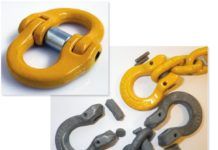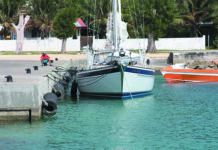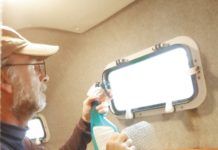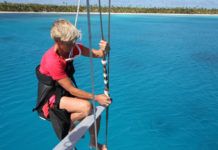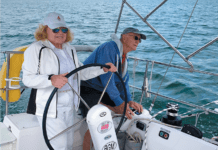Onboard Medical Kits
Crew on boats venturing farther from shore or sailing in more remote areas have a greater risk of injury and illness.
Waters farther from shore will be more open, and exposed to waves with a longer fetch and winds at higher speeds. More time spent on deck is apt to increase the incidence of dehydration, headaches, nausea, and sunburn. More traumatic injuries such as cuts, sprains, and severe injuries will occur because the boats are apt to be in less stable sea conditions. Seasickness will also be a more significant problem.
A coastal cruiser medical kit will be called upon to sustain crewmembers with a wider variety of ailments for a longer time than those kits used by a daysailer. So not only do these kits require items not found in daysailer kits, they need more of the core items like bandages and basic medications. A hypothermic thermometer (with a range for measuring low body temperature), and a space blanket are among those items not in daysailer kits but should be in the coastal cruiser kit. Several medications should be included to combat seasickness, sunburn, nausea, pain, hypoglycemia, hypothermia, and other conditions that can arise at sea.
For more information on how to select onboard medical kits, purchase and download Survival at Sea, Volume 3: Onboard First Aid today!
To read more about how to best prepare for an emergency on the water, purchase the entire Survival at Sea ebook series from Practical Sailor. Four volumes in all – Life Rafts, Ditch Bags, Onboard Medical Kits, and Survival Electronics. Buy all four for the price of three!
You’ll get one complete ebook FREE.












